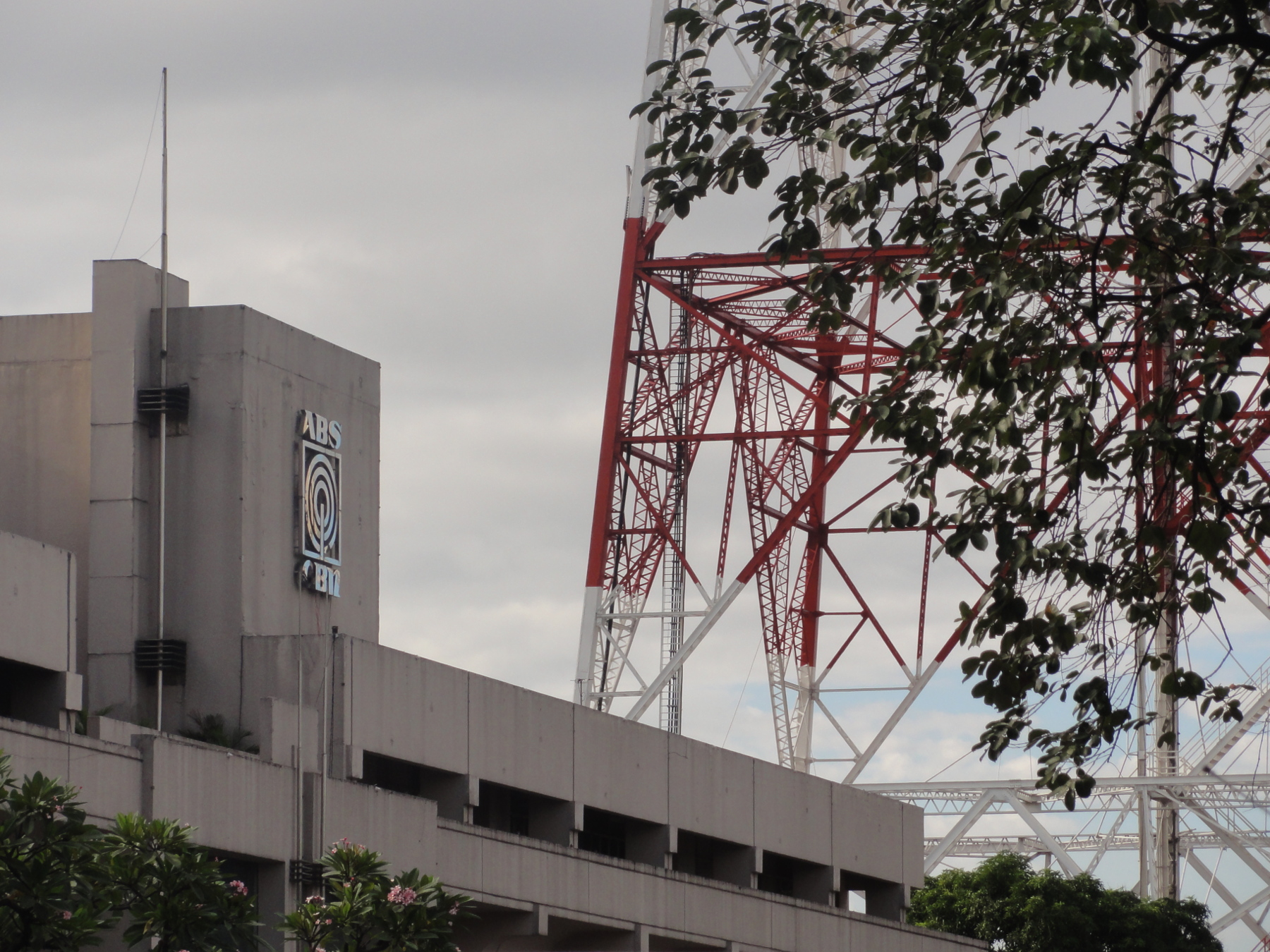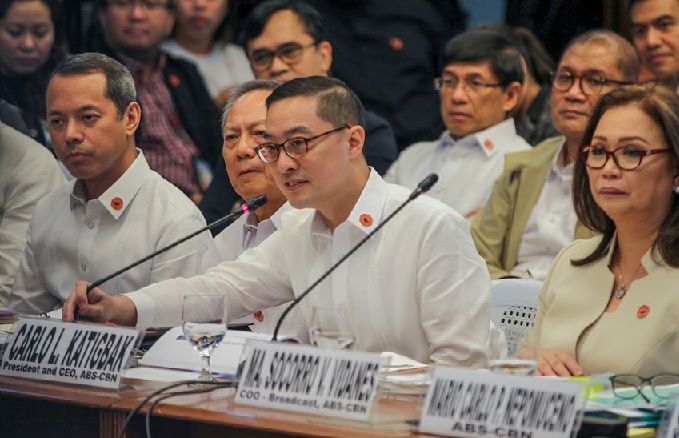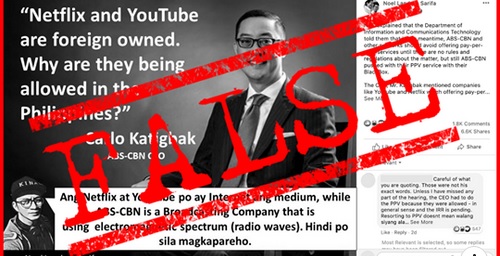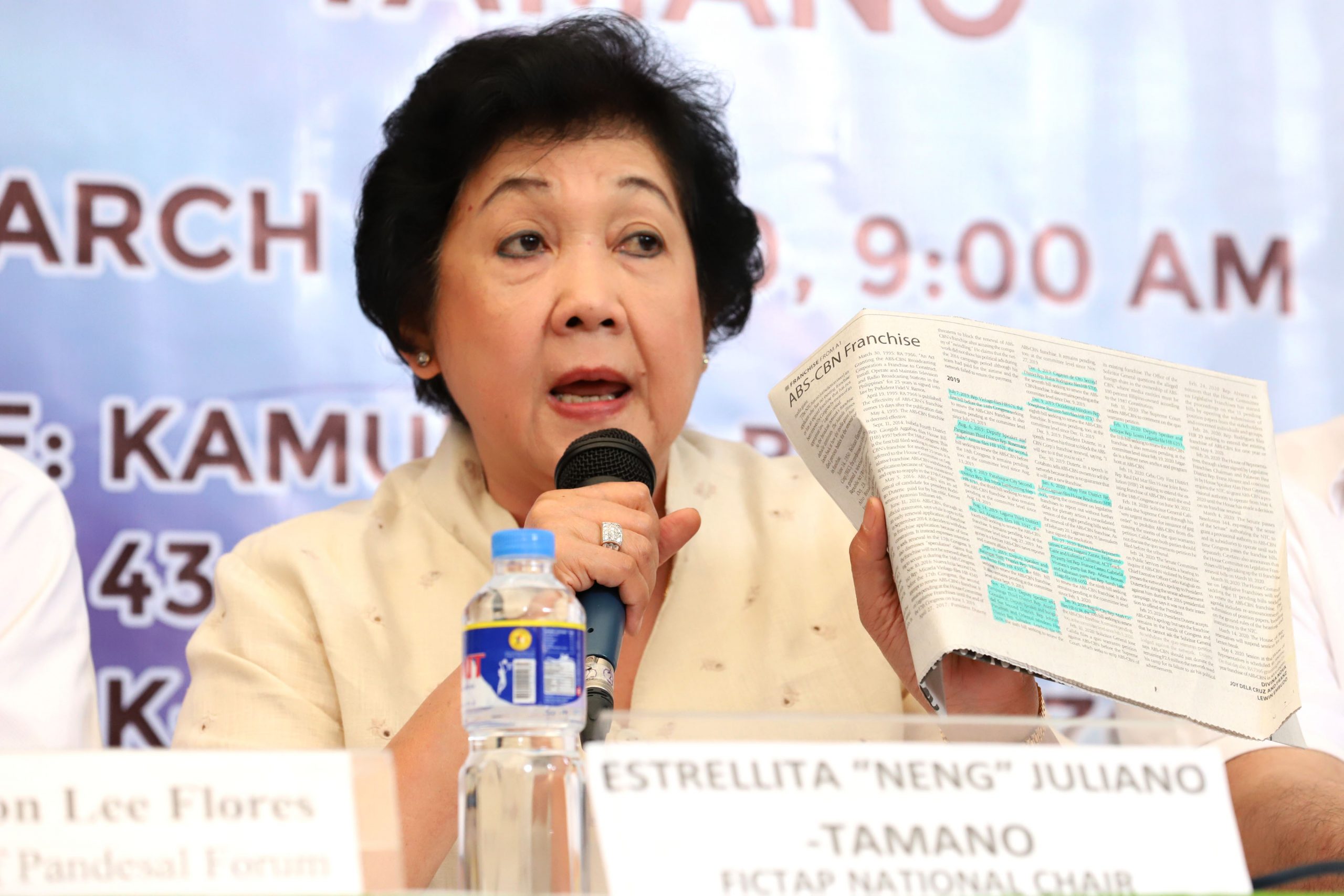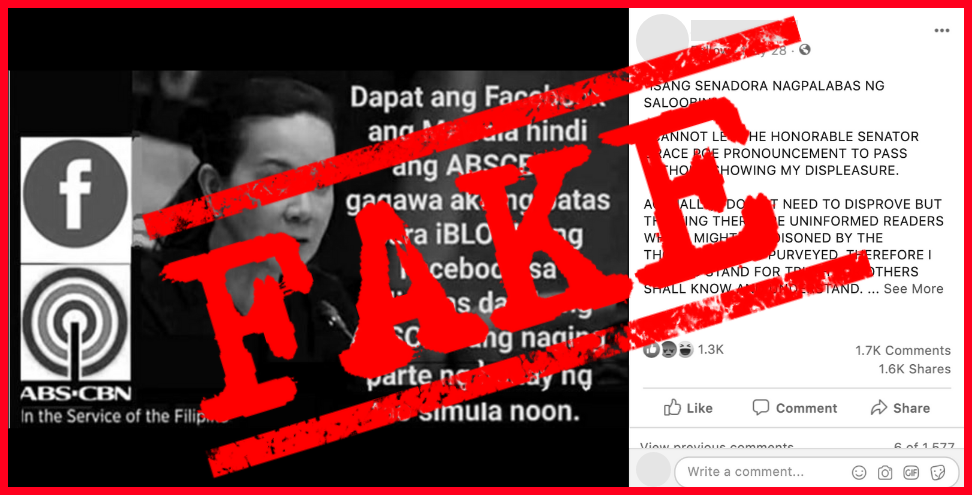As the franchise renewal of ABS-CBN continues to hang in the balance, legislators and executive officials differ in opinion on whether or not the broadcast network would be able to operate after its current license expires.
Prior to the Feb. 24 Senate hearing on the matter, for instance, both Senate President Vicente “Tito” Sotto III and House Speaker Alan Peter Cayetano have separately said ABS-CBN may continue to broadcast, even without a franchise, until March 2022. Justice Secretary Menardo Guevarra, for his part, also said it is “okay” for the television station to operate beyond its franchise event without a Congress resolution.
For Senate Minority Leader Franklin Drilon, on the other hand, “if there’s no franchise, [ABS-CBN] cannot operate.”
ABS-CBN is currently operating under a 25-year franchise through Republic Act 7966, enacted on March 30, 1995. At the Feb. 24 Senate hearing, Guevarra said the franchise will expire on May 4, 2020, not March 30, since the law took effect only 15 days after it was published in two newspapers of general circulation on April 19, 1995.
But can ABS-CBN continue to operate beyond this period without a new franchise? Here are three things you need to know.
1. What is a legislative franchise and why do broadcast companies need it?
A franchise, in this context, is a “privilege” granted by Congress to broadcast entities, such as ABS-CBN, to engage in a “certain type of telecommunications service.”
Companies operating television and radio stations, which are considered public utilities, are regulated because of the country’s “limited number of frequencies available for broadcasting” and for its “responsibility of assisting the government to promote and safeguard the public welfare,” according to Presidential Decree 576.
No person may conduct the business of being a public telecommunications entity “without first obtaining a franchise,” as stated in Section 16, Article VI of the Public Telecommunications Policy Act of the Philippines.
The law puts the National Telecommunications Commission (NTC) in charge of regulating and supervising telecommunications services, such as the operation of radio stations, broadcast television, cable television, and pay television.
The 1987 Constitution also mandates Congress to “regulate or prohibit” monopolies in commercial mass media when “required” by public interest, to prevent “restraint of trade” or unfair competition.
2. Can ABS-CBN continue to broadcast if its franchise expires and is not renewed?
In order for ABS-CBN to continue its operations after its franchise expires, the House of Representatives would need to pass a resolution “authorizing” the NTC to issue a “provisional permit,” Pacifico Agabin, former dean of the University of the Philippines College of Law, told VERA Files in an interview on Feb. 21.
“Without a resolution, I don’t think the NTC would have the authority to give a provisional permit,” he said, citing the 2003 Supreme Court (SC) decision on Associated Communications & Wireless Services vs. NTC.
The high court then held that, “as long as the law remains unchanged,” the power to issue and extend franchises for operating radio and television broadcasting stations lies with Congress, not with the NTC.
Former Chief Justice Reynato Puno, who penned the 2003 SC decision, reiterated this in a Feb. 25 interview with CNN Philippines, saying “without a franchise, the television station concerned has to cease operations.”
Puno said a concurrent resolution by both houses of Congress, or a resolution by just the House of Representatives itself granting ABS-CBN a provisional permit, would suffice.
Commission on Human Rights Chair Chito Gascon, one of the framers of the 1987 Constitution, on the other hand, said ABS-CBN “should be allowed to continue to operate” even if Congress fails to act on its franchise renewal because “constraints to freedom of speech and of expression are the exception rather than the rule.”
“ABS-CBN is exercising a preferred right — just like each of us citizens are able to speak our minds, to express ourselves, to organize and mobilize. The same should also be a right extended to media organizations.”
Source: Interview with Chito Gascon, Feb. 21, 2020
3. What is Congress doing about ABS-CBN’s franchise renewal?
The Senate tackled in its hearing, among others, Senate Joint Resolution No. 11, filed by Drilon, which seeks to extend ABS-CBN’s franchise until Dec. 31.
A joint resolution, if approved by both houses of Congress and signed by the president, will have the same force and effect of a law. (See VERA FILES FACT SHEET: 3 things you need to know about the Senate voting process)
Sen. Grace Poe, chair of the Senate committee on public services, in a media interview after the hearing, said her committee is “merely seeking to grant [ABS-CBN] a temporary permit to operate” while Congress continues to study the merits of the case.
A similar resolution had been filed at the House of Representatives seeking to extend the franchise until the end of the 18th Congress on June 30, 2022.
Twelve bills seeking to grant ABS-CBN a fresh 25-year franchise remain pending at the House committee on legislative franchises, but no hearings have been set for the remaining session days before Congress goes into a two-month break on March 13.
